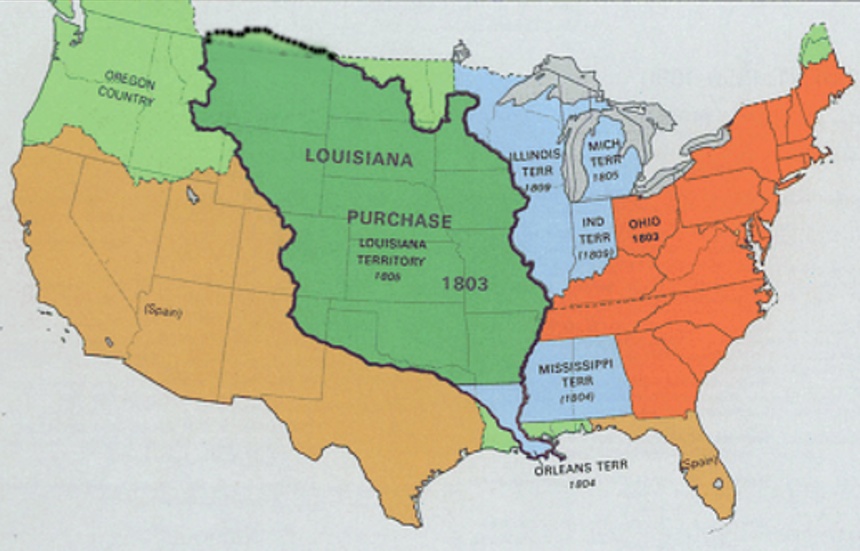On July 4, 1803, two hundred and ten years ago today, Thomas Jefferson’s administration announced the United States had the opportunity to double its territory.
A few months earlier, President Jefferson had sent James Monroe to France to purchase New Orleans or at least negotiate trade access to its port. Much to everyone’s surprise, Napoleon sold him not only New Orleans, but most of the Mississippi River Basin, a total of 827,000 square miles of land for $15,000,000.
Why did Napoleon do it?
Lacking a strong Navy, France’s hold in the New World had always been tenuous. By 1803, its richest colony, Santa Domingue (now Haiti) had seen a decade of bloody slave uprisings and savage reprisals against the black population whom the French Revolution had theoretically freed. When French troops arrived to restore order (and slavery), yellow fever decimated them.
 France would have to do without Haiti’s precious sugar cane. Building on new methods to extract sucrose from sugar beets, Napoleon began a program to replace imports with home-grown production. France’s foothold in the New World became less important.
France would have to do without Haiti’s precious sugar cane. Building on new methods to extract sucrose from sugar beets, Napoleon began a program to replace imports with home-grown production. France’s foothold in the New World became less important.
Meanwhile, in Europe, although Napoleon’s army had been triumphant in every battle, new wars were brewing. France had to concentrate its resources at home, leaving New Orleans unprotected. Convinced he’d lose it and the Louisiana territories anyway, Napoleon abruptly sold them.
Today, due to Napoleon’s ingenuity, France is the world’s largest producer of sugar beets. And the United States, without the Louisiana Purchase, wouldn’t be the country we celebrate on this July 4th holiday.

